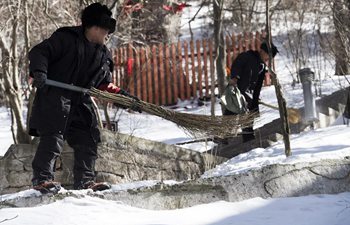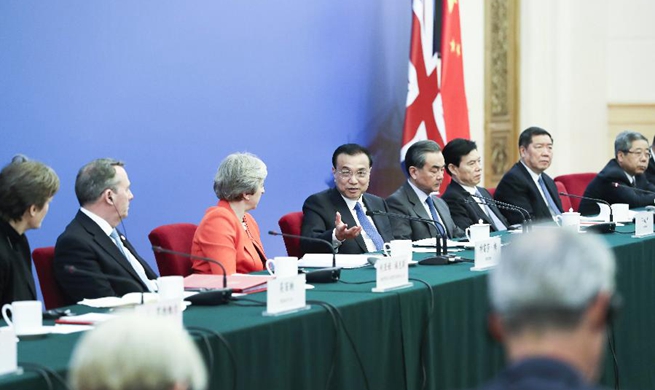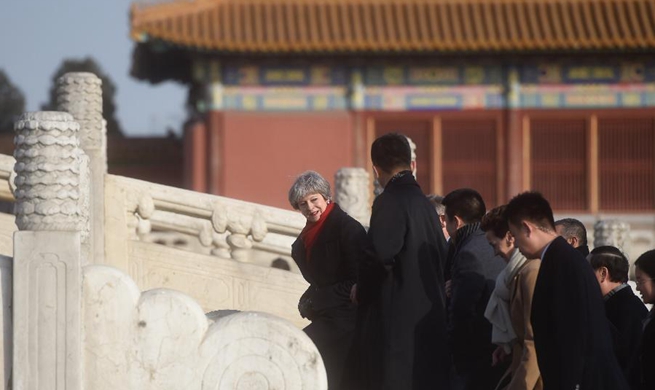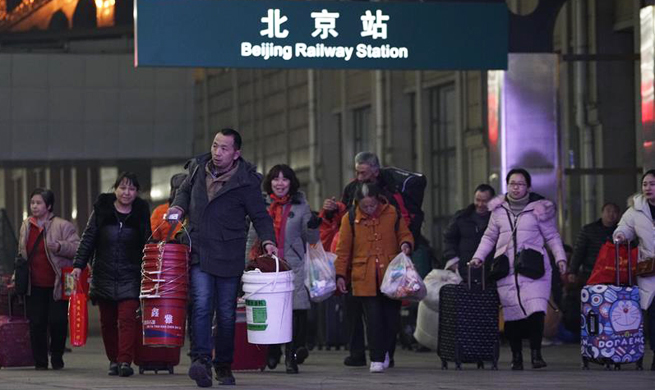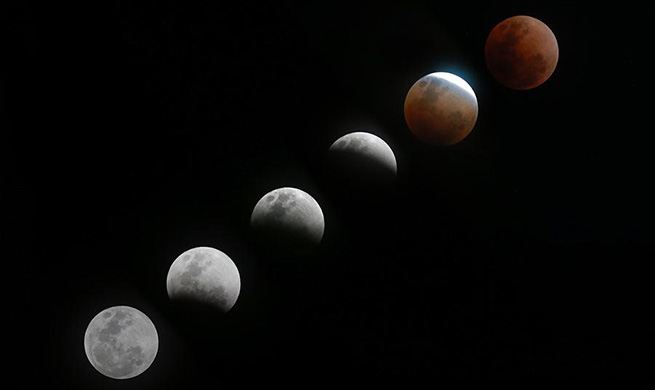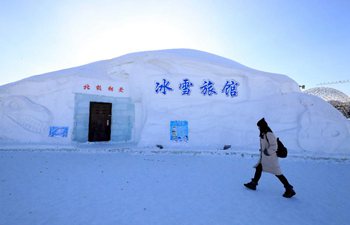WASHINGTON, Jan.31 (Xinhua) -- A week after assuming office, U.S. President Donald Trump directed the Department of Defense to draw up the Nuclear Posture Review (NPR), the guiding principle for the government's nuclear policy.
One year after his executive order, the Pentagon is said to be finalizing the report. Meanwhile, a draft of it, believed to be authentic, was leaked and is being circulated online.
According to the draft, the NPR is advising an expansion of the U.S. nuclear arsenal, which is already the world's largest, justifying the expansion on the ground that other nuclear powers, notably Russia, are posing increasing challenges to U.S. dominance and weakening Washington's existing nuclear deterrence.
However, experts who have seen the draft warn that beefing up nuclear weapons would send a wrong message to the international community and almost certainly increase the chance of a nuclear war.
While arms control advocates say the decision will lower the threshold of nuclear use, the document paints an exactly opposite scenario, saying the move will raise the nuclear threshold by making potential adversaries perceive that there is no possible advantage in their limited nuclear escalation, thereby making nuclear employment less likely.
The NPR seeks to boost the nuclear capability of both the U.S. strategic submarine and attack submarine fleet, and requests doubling the current funding for nuclear development.
"Maintaining an effective nuclear deterrent is much less expensive than fighting a war that we were unable to deter," it says.
THE RUSSIA FACTOR
Like the view expressed by the National Defense Strategy and National Security Strategy earlier, the NPR highlights recent actions by Moscow, calling them unsettling.
It says Russia has recently modernized its low-yield nuclear arsenal and developed a strategy to use nuclear weapons initially in regional conflicts.
"These developments, coupled with Russia's invasion of Crimea and nuclear threat against our allies, mark Moscow's unabashed return to Great Power competition," the document says.
Based on intelligence, Russia may plan a limited nuclear first use, thinking "its greater number and variety of non-strategic nuclear systems provide a coercive advantage," it says.
The leaked draft reveals a serious U.S. concern that Russia may use limited nuclear weapons during potential conflicts in Eastern Europe against NATO countries in the hope of preventing the United States from deploying troops to the region, and capitalizing on the United States' reluctance to deploy full-size nuclear weapons for fear of a full-flung nuclear war.
GRAVE CONCERNS
Although the NPR says it is not intended to unleash "nuclear war-fighting," experts are skeptical whether the strategy will improve global security.
"It is an axiom in nuclear policy that the more nuclear weapons there are and the more countries that have nuclear weapons, the greater odds of that use," Jon Wolfsthal, former senior director for Arms Control and Nonproliferation at the U.S. National Security Council, told Xinhua.
"We've had nuclear accidents. We've been very lucky to avoid nuclear war both on purpose and escalation multiple times," Wolfsthal said.
The sentiment was shared by Thomas Countryman, former acting under secretary for Arms Control and International Security, who expressed his worry that the policy will trigger a negative chain response from the international community.
"The posture review does not, and will not be issued in a vacuum ... Other nations will look to the United States to determine their own policy, and the signal that is being sent is unfortunately that the United States is putting aside a legal obligation," Countryman said.









